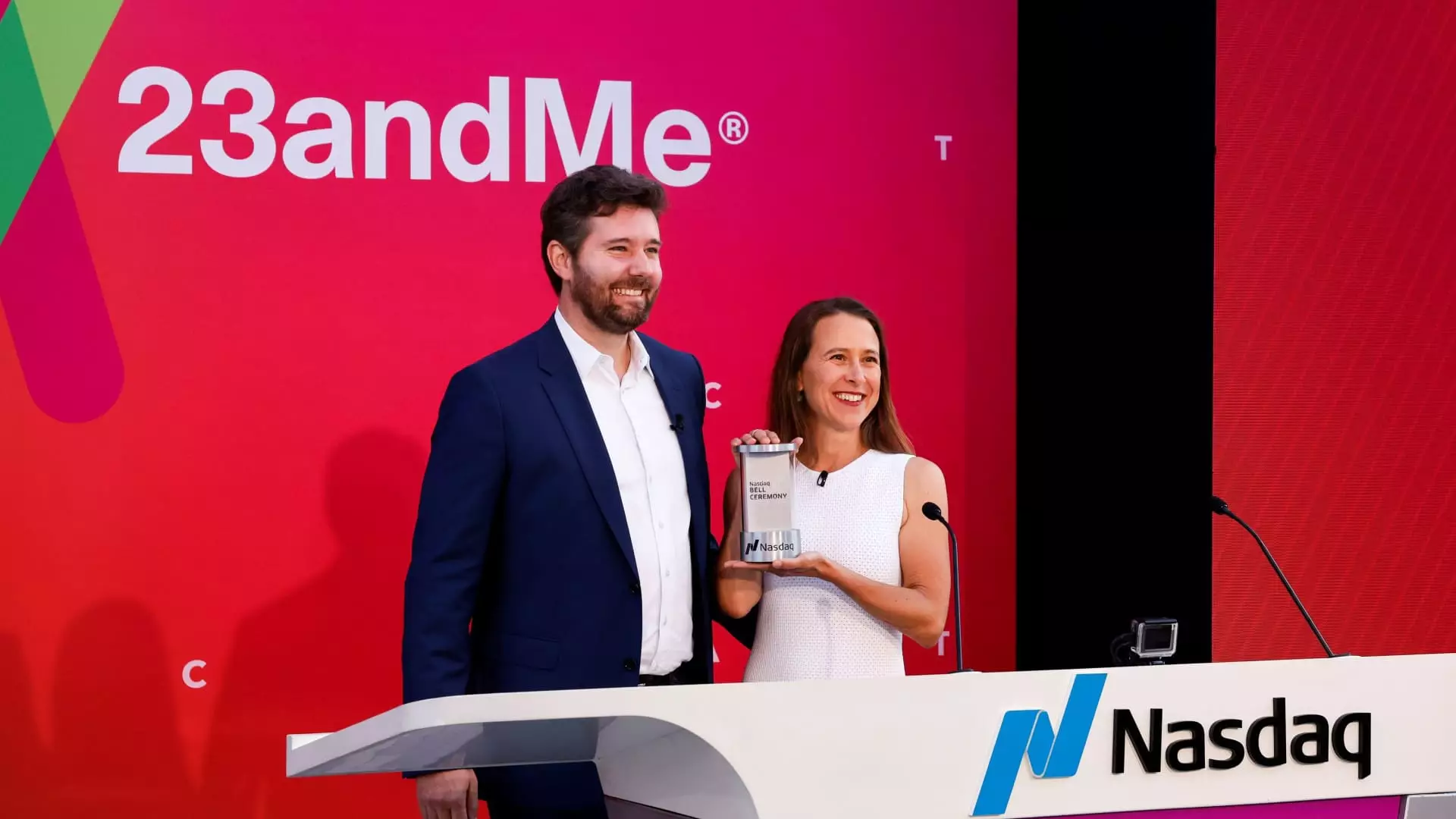Founded in 2006, 23andMe emerged as a pioneer in the world of genetic testing, aiming to democratize access to personal genomic data. By adopting a direct-to-consumer model, the company challenged the traditional notions of genetic testing, transforming it from a somewhat exclusive service into a mass-market product. With considerable backing from well-known investors and high-profile celebrity endorsements, 23andMe captured the public imagination, selling genetic test kits at prices that were increasingly accessible. At its peak, the company boasted a valuation of $6 billion, signifying the immense promise seen in both the consumer and pharmaceutical sectors.
23andMe was not merely about ancestry; it sought to leverage its expansive database for drug discovery, hoping to carve out a unique niche apart from competitors like Ancestry.com. This ambitious vision resonated with investors, and following its public listing in 2021, the company was valued at approximately $3.5 billion. CEO Anne Wojcicki was optimistic about the future, speaking of “huge opportunities” in both therapeutics and consumer engagement. However, beneath the surface of these optimistic assertions lay challenges that would soon threaten the very foundation of the company.
While growth prospects appeared robust at the time of its initial public offering (IPO), unforeseen market volatility quickly took its toll. The rise in interest rates impeded 23andMe’s ability to secure funding and contributed to a decline in sales. Furthermore, the introduction of a premium subscription model in 2020, which was envisioned as a revenue booster, failed to gain the anticipated traction. The company reported an alarming $312 million net loss in the fiscal year of 2023, and by September 2023, the share price had plummeted to below $1—a significant drop reflecting investor discontent and waning consumer confidence.
In addition to economic troubles, 23andMe faced mounting privacy concerns surrounding its extensive genetic database. A data breach in October 2023 compromised the sensitive information of nearly 7 million customers, instigating fears about the safety of personal genetic data. Such breaches not only threaten the integrity of customer trust but also cast a shadow over the entire industry. The predicament raised urgent questions regarding how 23andMe would handle its data management practices moving forward, especially in light of the company’s commitment to privacy articulated by Wojcicki herself.
The path ahead for 23andMe became increasingly fraught with strategic misalignments. Wojcicki’s ambition to take the company private was met with resistance. A proposal she submitted in July 2023 was rejected by a special committee for lacking any premium over the dismal stock price of 40 cents per share at that time. Furthermore, the resignations of independent board members in September 2023 underscored deeper frustrations with Wojcicki’s vision and strategic approach for 23andMe, illustrating a leadership crisis at a pivotal moment.
With a looming November 4 deadline to maintain its Nasdaq listing, 23andMe faces a critical juncture. The company must identify new board members and find a way to elevate its share price above $1 to avoid de-listing. Investors and stakeholders are left to ponder what the future holds for a company that once epitomized innovation in a potentially transformative field but now finds itself battling a convergence of economic, operational, and reputational challenges.
The unraveling of 23andMe serves as a sobering reminder that in the world of startups and high-valuation technology companies, successful innovation is not guaranteed. The interplay between vision, market dynamics, leadership, and public trust forms a delicate balance that must be navigated with care. As 23andMe attempts to repair its shattered foundation, it stands as a testament to the volatility of the tech landscape and the importance of aligning strategic ambitions with market realities. Whether this once-promising enterprise can turn its fortunes around remains to be seen, but the lesson is clear: even the brightest stars can falter without strategic clarity and consumer confidence.

